Gov. Mike Braun is moving ahead with a special legislative session on Nov. 3 to address redrawing Indiana’s congressional maps, which many elected officials and Hoosiers oppose. According to Braun, the special session will also address Indiana’s tax code and new federal tax provisions.
The voice of the voter
Some elected officials have concerns that redistricting could suppress voter voice, specifically among minority communities.

“When you look at the two districts that are impacted and the two congressmen, Frank Mrvan, where I am, and Andre Carson in the Indianapolis area, you have a pretty sizable minority vote, whether it’s Black, Latino, etc.,” said Indiana Black Legislative Caucus (IBLC) Chair Rep. Earl Harris, Jr. (D-East Chicago). “So, now we’re taking away the voice of voters that are Black and brown and that’s not, again, what we should be doing. We should make sure that people choose the people they want to represent them and especially not take away the minority vote.”
The African American Coalition of Indianapolis (AACI) noted that Indiana’s first and seventh Congressional Districts, the two districts most likely to be affected by the new maps, include many Black and Latino residents.
“Any changes to these boundaries could alter the balance of representation and diminish the collective voice of diverse urban communities,” AACI said in a statement.
Rep. Cherrish Pryor (D-Indianapolis) said there is an effort to diminish non-Republican voices.
“Apparently, this administration wants to silence our voices, the voice of 40% of voters that did not cast their ballot for a Republican,” Pryor said in a statement. “Hoosiers are starting to feel the impact of unkept promises and failed policies. The bottom line is, Republicans are afraid to defend their record, and they would rather turn our democracy upside down than stand on their policies that are harming our neighbors.”
Harris shared concerns that redistricting would further discourage Hoosier voters from showing up to the polls and reverse years of progress. He remembered the guidance of his father, Earl Harris Sr., who held the congressional seat for 33 years before him.
“We could do decades or generations of damage to our country and you and I, we’ll all be gone before we get back to where we were just a few years ago,” Harris said.
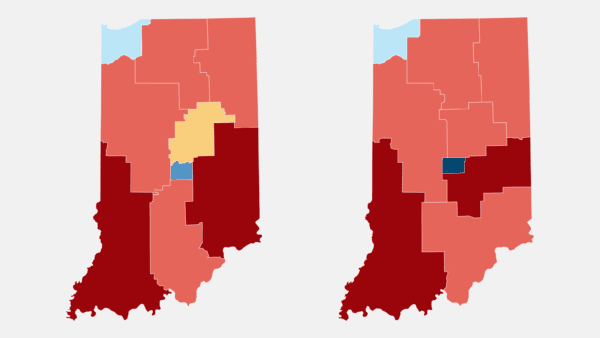
Fair representation
In his statement, Braun said the aim of the special legislative session is to “protect Hoosiers from efforts in other states that seek to diminish their voice in Washington and ensure representation in Congress is fair.”
House Democratic Caucus Leader Rep. Phil GiaQuinta (D-Fort Wayne) said Hoosiers are fair-minded and don’t like changing the rules in the middle of the game to give one party the advantage over the other.
“Fair representation is essential to ensuring public policy reflects the needs of all Hoosiers, especially in areas such as health care, infrastructure and economic opportunity,” according to the AACI.
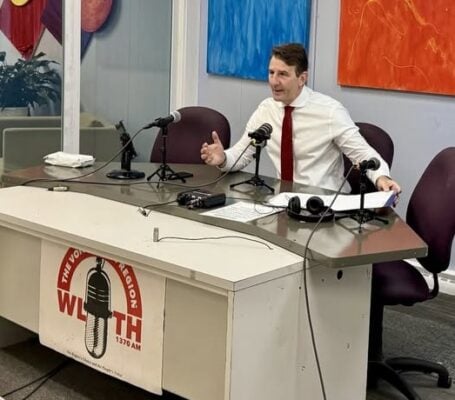
Harris added that Indiana voters have already made their selections clear in previous elections, by voting in representation that works for them. Mrvan and Carson have been elected multiple times by their constituents, both in areas with a large minority voter base, Harris said.
“We are supposed to be chosen by the voters, not us choosing whom we will represent,” Harris said.
While Indiana has a large Republican base, Harris pointed out that not all Hoosiers vote that way.
“Indiana is more purple,” Harris said. “President Trump only won with 58% of the vote. That’s 58, not 85 or 90 … I know we look like a complete red state because of the make-up of the Statehouse, because the districts are drawn that way … but we’re really not a red state as people are trying to point out and people are trying to use as justification for this move.”
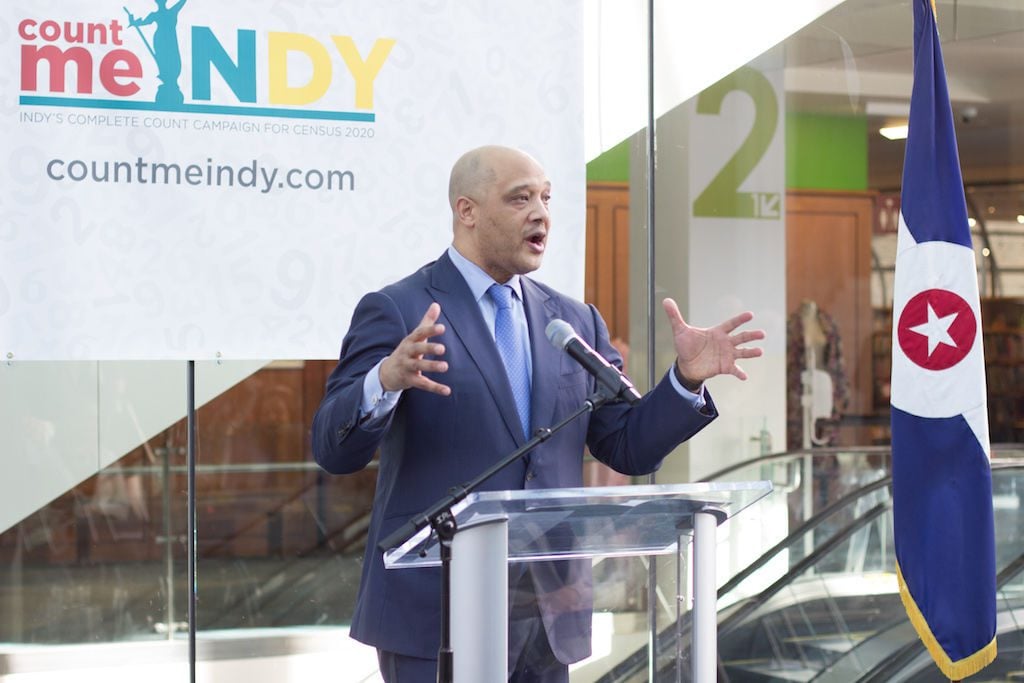
The bigger picture
To GiaQuinta, the pressure to redraw is not coming from within Indiana. He said he’s never received a call from any constituent telling him the maps were bad.
“In my opinion, it’s a mandate coming from Washington, D.C. … I’ve always felt like Hoosiers are an independent-minded group and we don’t really like it when someone from Washington D.C. is coming in to tell us how to do our job,” GiaQuinta said.
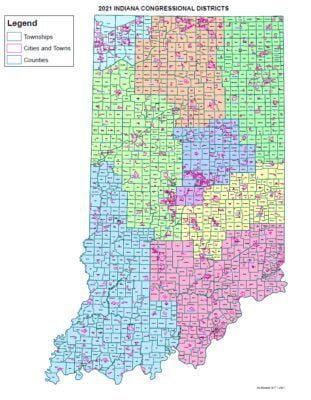
“This is a process that started in Texas with President Trump pressuring them,” Harris said. “We’re hearing and seeing it happen in more and more states … It’s almost the theory of, if you can get away with it, you’re going to continue to push and try to get away with it wherever you can, which is taking away the strength of our democracy.”
Redistricting efforts began this summer in Texas, where there is potential to provide Republicans with five additional congressional seats in the 2026 elections. Republicans currently hold 25 of the 38 seats in Texas.
To counter the new map in Texas, California Governor Gavin Newsom advocated for his state to redraw their map and potentially add five seats for Democrats next year. The referendum for redistricting in California is scheduled for a vote on Nov. 4.
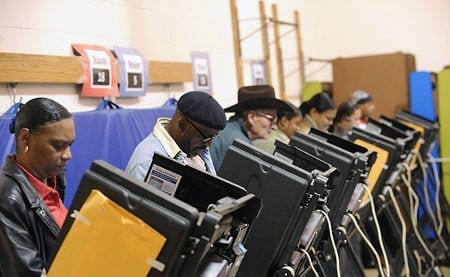
What voters can do next
Previous reports indicated that there were not enough votes to move forward with redrawing the maps, but Braun calling the special session indicates to some that there has been a shift toward support in redistricting.
Harris encouraged voters to reach out to their representatives, senators and Gov. Braun to share their concerns. There is also a Common Cause Indiana petition that voters can sign to say no to mid-cycle redistricting. You can find the petition at commoncause.org/indiana/.
The AACI has provided email and phone scripts for contacting legislators as well as a legislator contact list. For more information from AACI, visit aacindianapolis.org.
To contact state legislators by phone, call 317-232-9400.
Camike Jones is the Editor-in-Chief of the Indianapolis Recorder. Born and raised in Indianapolis, Jones has a lifelong commitment to advocacy and telling stories that represent the community.









